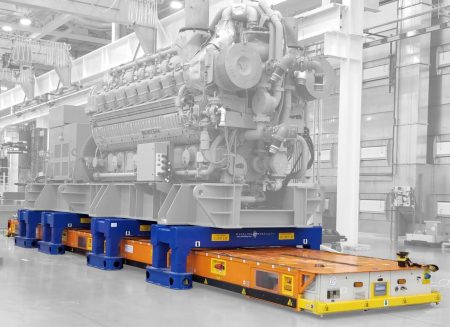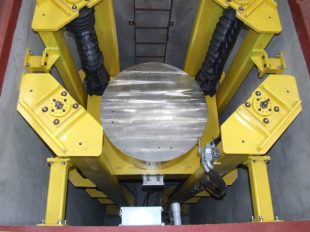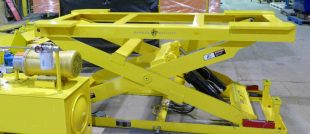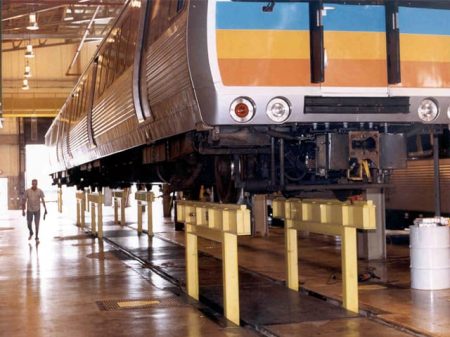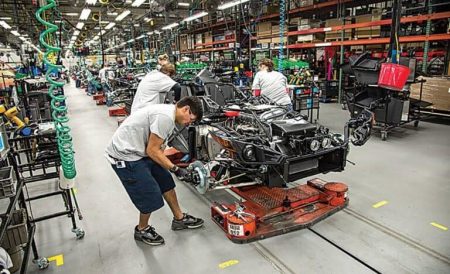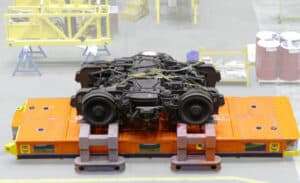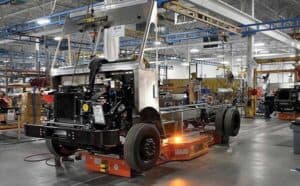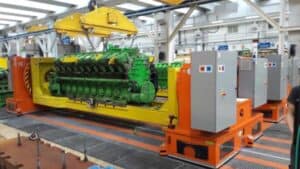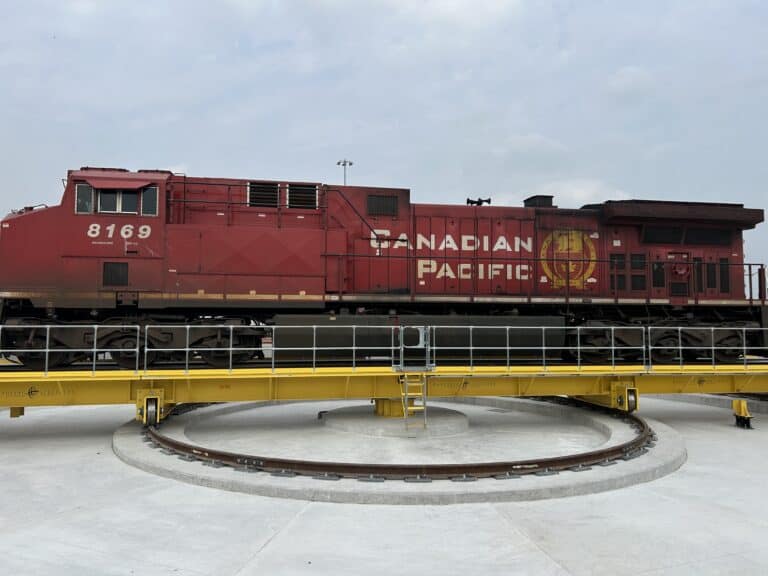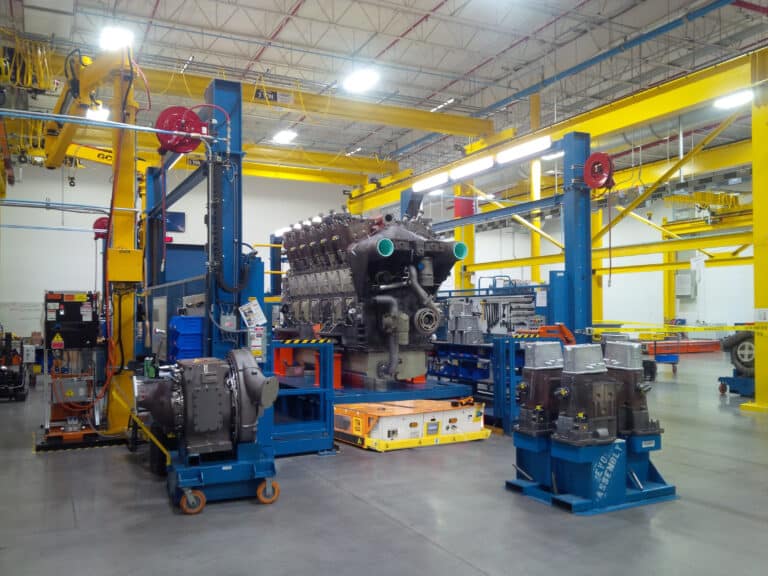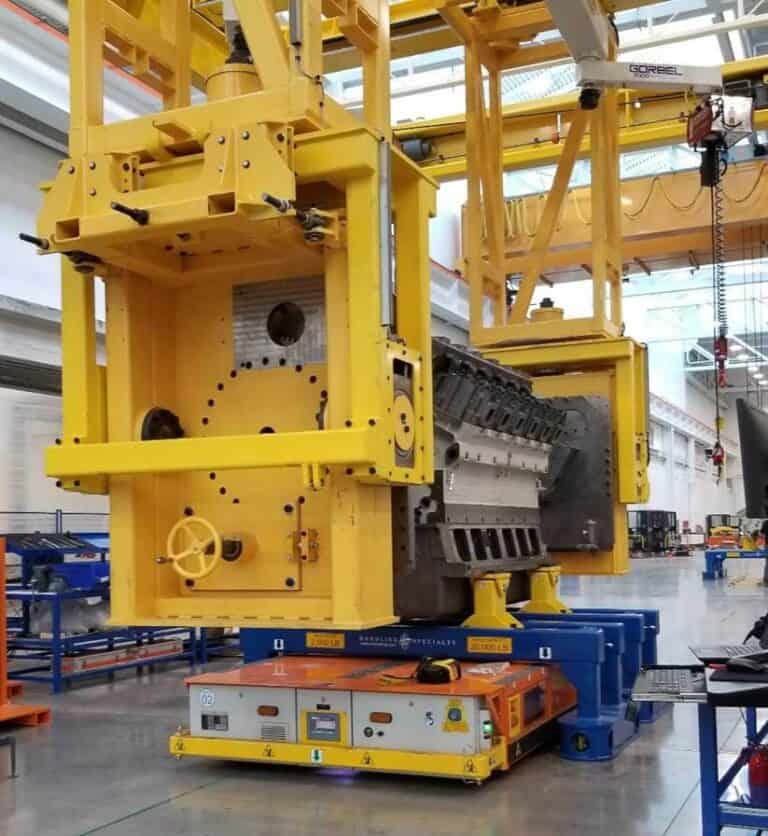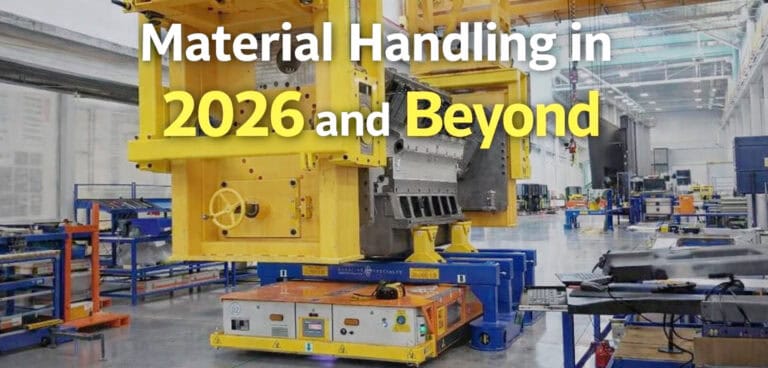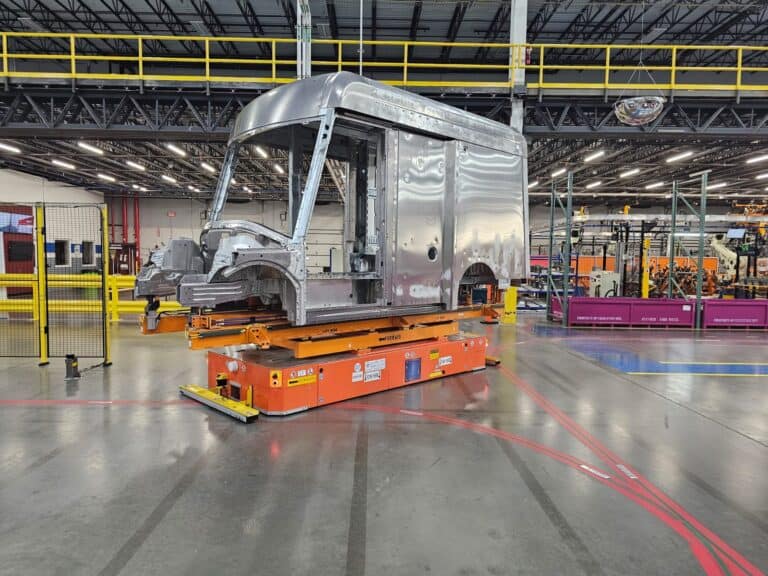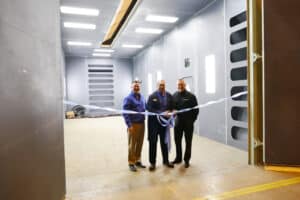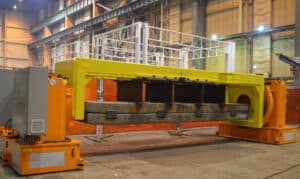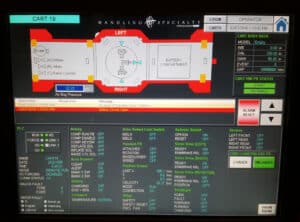On the topic of flexible solutions from an AGV manufacturer, one must include intelligent fleet management, job-specific applications, automation, and the industrial Internet of Things, or IIoT. Handling Specialty offers decades of experience in designing, building, and maintaining heavy-duty AGVs for multiple industries all over the world. Therefore, as an engineered-to-order automated guided vehicle builder, who better than to answer your questions on AGV type, AGV features, and AGV accessories.
The heavy-duty AGV has become an increasingly important part of automating processes in assembly, manufacturing, and repair & maintenance operations. Not only do they increase efficiency on the floor, but they also increase worker safety and improve ergonomics.
AGV Types
The most common types of AGV include the tugger or towing AGV which pull a cart along the shop or warehouse floor. These are not suitable for assembly, MRO, or manufacturing purposes. Nor is the forklift AGV the right fit for assembly or manufacturing, as they essentially only move pallets from point A to B without human intervention. Heavy-duty AGVs are what manufacturing, assembly and MRO industry professionals require for their application-specific needs.
Of course, any automated piece of equipment is designed to replace expensive or non-existent labourers, and with the trades losing people day to day, automation isn’t just about saving money; it’s about maintaining a factory’s ability to compete.
- Heavy-duty AGVs are engineered to perform in punishing environments which require multiple cycles of moving product through an assembly line, factory, or maintenance routine. These units are custom-built to the client’s requirements, including weight capacities, lift and lower features, rotations, tilt, and much more. These heavy-duty automated guided vehicles are programmed to follow a predetermined path on a factory floor, moving through work cells where automated robots or skilled technicians will be met at a precise height and angle where they can perform their work.
- Forklift AGVs do not have the features a custom AGV does, and so do not operate in this capacity.
- Tower AGVs are often found in warehouses and distribution centers moving carts of picked product from point A to B. These are often unable to handle the rigours of an assembly, manufacturing and MRO facility.
AGV Features
Intelligent design is at the core of an AGV. Automation requires an onboard computer which allows the AGV to communicate with and receive instructions from a central control processor and also other AGVs on the floor.
- HMI screens give a real-time visual of the AGV fleet’s charge while offering each unit’s location on the line.
- Steering functions can be as advanced or simple as a customer requests. Custom AGVs can move forward, backward, and side to side in a diagonal ‘crabbing’ motion and can perform zero-radius turning.
- Sensors are an important part of an AGV’s safety features. AGV sensors can prevent collisions with people and product by halting the unit’s momentum.
- Audible and visual alarms are also useful in any environment when an automated vehicle is in operation. These alert employees to the AGV’s approach.
- IIoT options make maintaining your AGV a proactive process rather than waiting for a part to break. IIoT keeps the AGV connected to the client’s central control processor, alerting operators of the unit’s general health to help avoid downtime.
- Batteries and battery charging cords come with your custom heavy-duty AGV.
AGV Accessories
- Scissor lifts are a common accessory positioned on the AGV’s platform. Every platform’s shape and size is determined by the product being moved upon it. A scissor lift raises and lowers to the preprogrammed height for each work cell to allow technicians an ergonomic work environment.
- Rotisseries are also found on AGV platforms rotating a product to the correct position per work cell.
- Tilting accessories on an AGV is common in assembly operations positioning the product precisely in order to allow the work to be done quickly and efficiently.
- Certain industries require an AGV platform that will move a product along its surface, and these often include ball-bearing roller tables.
- Any tooling can be mounted to a custom AGV to assist with assembly, manufacturing or MRO duties. Specified tooling offers a secure hold on a product, increasing the safety of the people and the product.
The above is only a sample of the potential an automated guided vehicle embodies to improve your facility’s efficiency, safety and bottom line. For a more robust example of the AGV you require for your assembly, manufacturing or MRO project, get in touch with one of our AGV professionals and understand the unlimited possibilities of custom-engineered AGVS.

